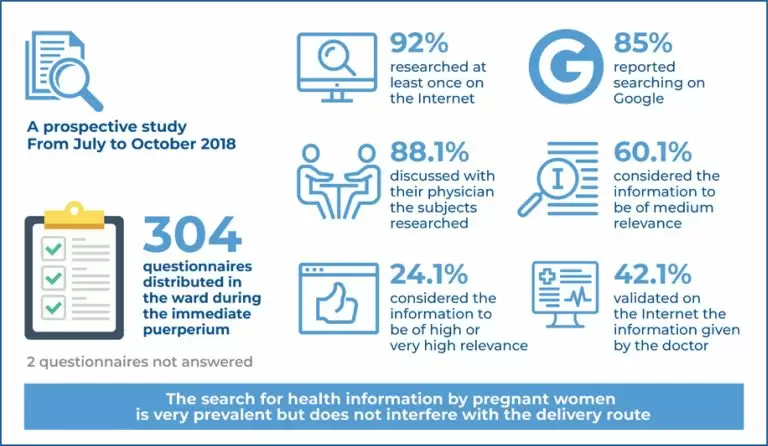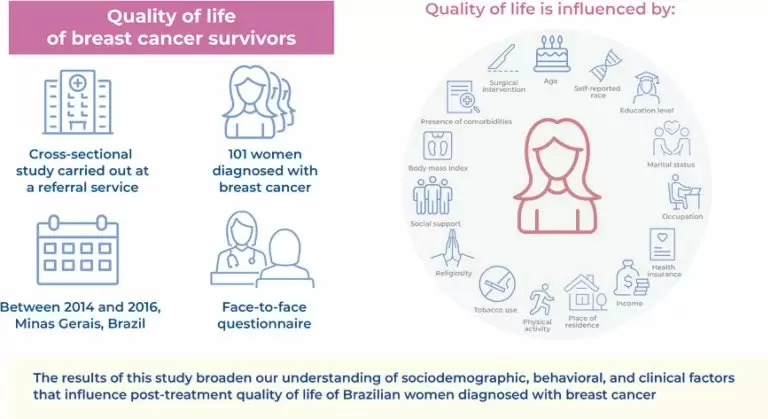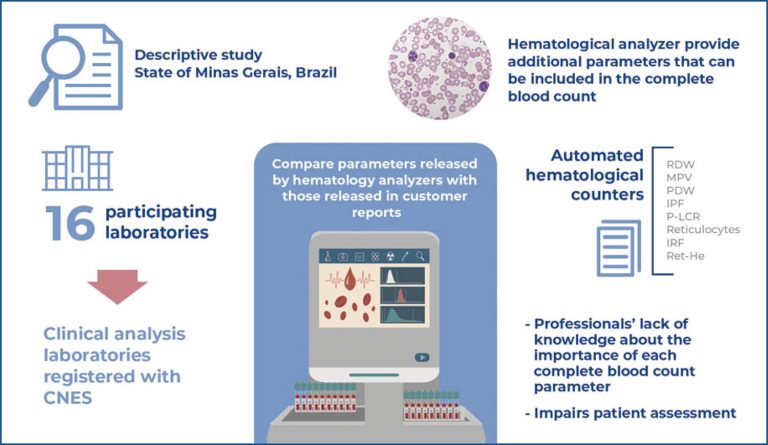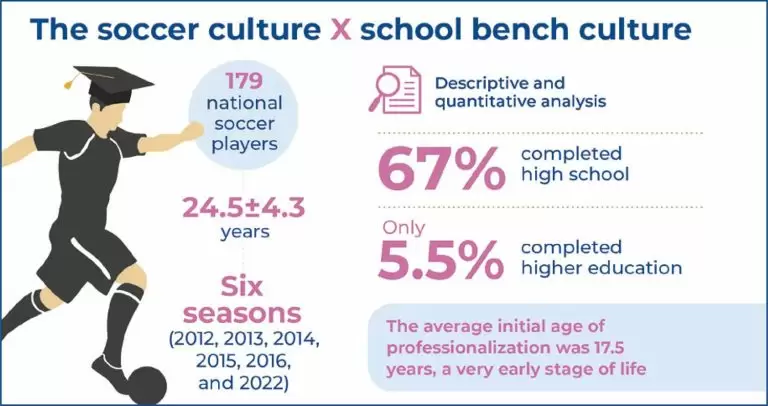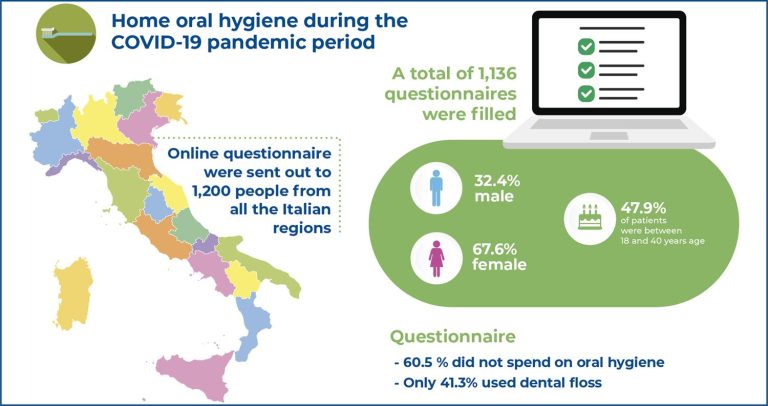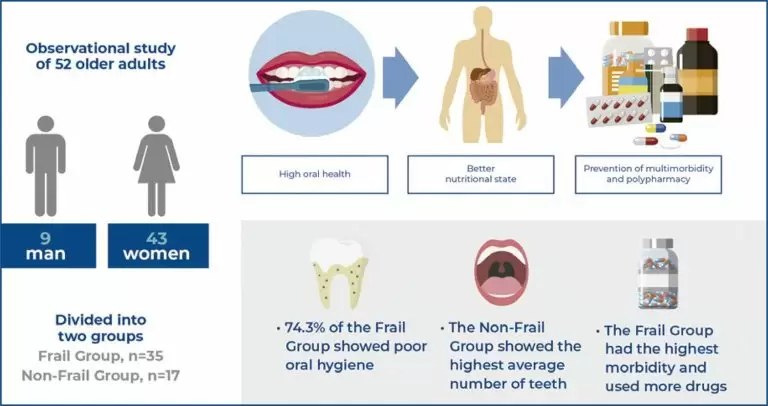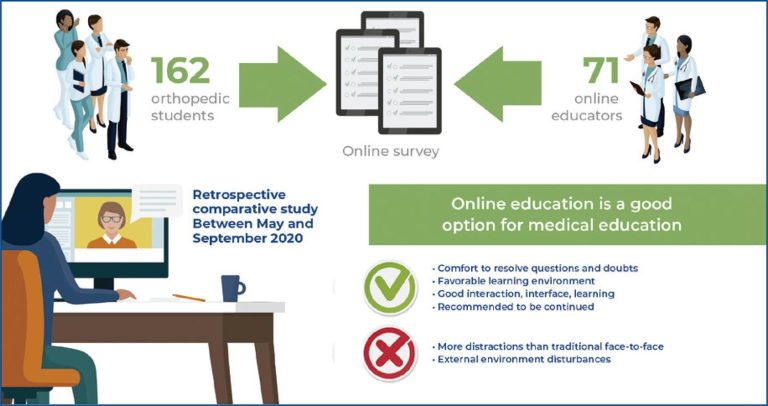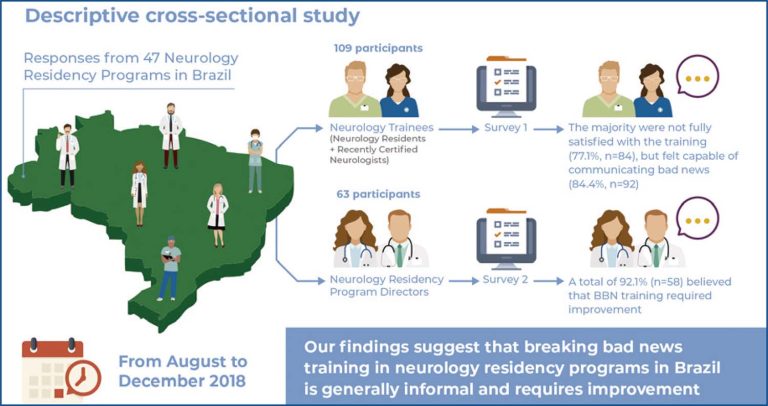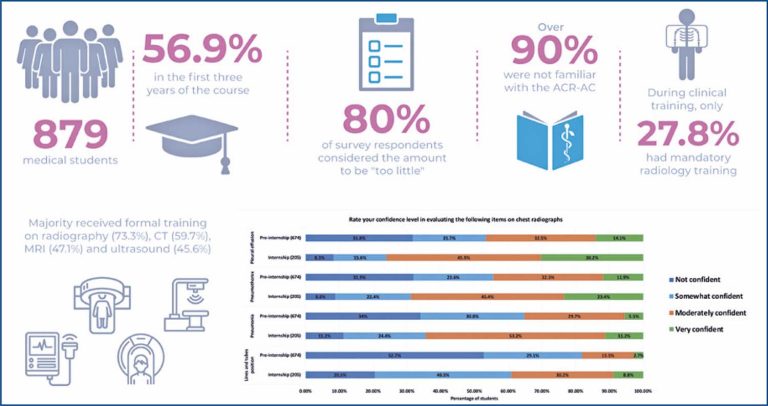22/Mar/2024
Internet use by pregnant women during prenatal care
DOI: 10.31744/einstein_journal/2024AO0447
Highlights High internet use: 92% of pregnant women used the internet to access health information during prenatal care. Top search topics: fetal development, nutrition, and childbirth were the primary topics of interest. Doctor-patient discussions: 88.1% discussed online findings with doctors, emphasizing patient engagement. No impact on delivery route: despite extensive internet use, no statistical impact on delivery route choice was observed. ABSTRACT Objective: The search for medical information on the internet is a part of people’s daily lives. Exponential volumes […]
Keywords: Consumer health information; Information seeking behavior; Internet search; Medical informatics; Pregnant Women; Prenatal care; Surveys and questionnaires
14/Mar/2024
Quality of life of women who underwent breast cancer treatment relative to sociodemographic, behavioral, and clinical factors
einstein (São Paulo). 14/Mar/2024;22:eAO0585.
View Article14/Mar/2024
Quality of life of women who underwent breast cancer treatment relative to sociodemographic, behavioral, and clinical factors
DOI: 10.31744/einstein_journal/2024AO0585
Highlights Sociodemographic, clinical, and lifestyle factors impact the quality of life of breast cancer survivors. Breast cancer therapy may affect future perspectives and emotional, cognitive, and sexual function. Some aspects of quality of life still require attention from health professionals. ABSTRACT Objective: Patients with cancer often undergo multiple extended treatments that decrease their quality of life. However, the quality of life of women with breast cancer after they undergo treatment remains underexplored in Brazil. Therefore, this study determined sociodemographic, behavioral, […]
Keywords: Activities of Daily Living; Breast neoplasms; Life style; Quality of life; Sociodemographic factors; Surveys and questionnaires
08/Dec/2023
Hematological parameters: is there a difference between those released by the hematological analyzer and to the customer?
DOI: 10.31744/einstein_journal/2023AO0501
Highlights Recent automated hematology analyzers provide additional parameters to the complete blood count. Sixteen laboratories of a medium-sized municipality of Minas Gerais were interviewed. No laboratory released all parameters obtained from the hematological analyzers to the customer. Expanding our knowledge and implementing these parameters in complete blood counts is essential. ABSTRACT Objective: This study aimed to compare the hematological parameters released by hematological analyzers with those released in customer reports. Methods: We conducted a descriptive study in the laboratories of […]
Keywords: Blood cell count; Erythrocyte indices; Laboratories; Laboratory equipment; Platelets; Reticulocyte; Surveys and questionnaires
11/Oct/2023
Contemporary reflection on the educational levels of high-performance soccer players in Brazil
DOI: 10.31744/einstein_journal/2023AO0269
Highlights Only 5.5% of Brazilian soccer players surveyed completed higher education. Of these 179 athletes, 67% completed high school. T۪۪he most educated were goalkeepers and defenders at 37% (66/179). Physical education for sports is different from educating the mind in terms of brain plasticity. ABSTRACT Objective: As the soccer culture in Brazil is more popular than schooling, this study reflected on the formal education levels of soccer (football) players through descriptive and quantitative analyses. Methods: We evaluated 179 national soccer […]
Keywords: Athletes; Athletic performance; Educational measurement; Higher education policy; Self-directed learning as topic; Soccer; Students; Surveys and questionnaires
15/Sep/2023
Epidemiological evaluation of patient compliance regarding oral health and hygiene during the COVID-19 period
DOI: 10.31744/einstein_journal/2023AO0195
Highlights Dental and tongue hygiene are key to maintaining systemic health. The questionnaire was sent by e-mail to 1,136 male and female patients throughout Italy. Demonstrate and understand whether patients during the pandemic cleaned and spent time cleaning and maintaining their teeth and tongue hygiene. The questionnaire testifies to the fact that it is not the time but the patient’s compliance and motivation that makes the difference. INTRODUCTION Oral hygiene techniques must be performed not only to maintain oral […]
Keywords: Coronavirus infections; COVID-19; Epidemiologic studies; Oral health; Oral hygiene; Patient compliance; Surveys and questionnaires
31/Jul/2023
Impact of oral health on frailty syndrome in frail older adults
einstein (São Paulo). 31/Jul/2023;21:eAO0103.
View Article31/Jul/2023
Impact of oral health on frailty syndrome in frail older adults
DOI: 10.31744/einstein_journal/2023AO0103
Highlights Better oral hygiene improves aspects of social interaction. Care of teeth and dentures is beneficial for chewing and swallowing. Poor oral health is clearly related to frailty. ABSTRACT Objective This study aimed to correlate oral and general health in frail and non-frail older adults. Methods This observational study included 52 older adults, of whom 35 were frail (Frail Group), and 17 were non-frail (Non-Frail Group), according to Fried’s self-reported test addressing oral health variables, number of systemic diseases, and […]
Keywords: Aging; Frail elderly; Frailty; Health status; Oral health; Self report; Surveys and questionnaires
25/Jul/2023
Changes in the methodology of medical teaching due to the COVID-19 pandemic
DOI: 10.31744/einstein_journal/2023AO0101
Highlights Teaching method preferences of medical students 162 and teachers 71 were evaluated. Both groups showed high satisfaction and a sense of learning in virtual classes. The virtual method resulted in worse retention of attention. The virtual method also showed higher interference from the external environment. ABSTRACT Objective To evaluate the perceptions of students and teachers regarding remote teaching modality in comparison with the traditional face-to-face method. Methods In this observational, retrospective, comparative, single-center study, questionnaires containing three major […]
Keywords: COVID-19; Education, distance; Education, medical; Learning; Motivation; Pandemics; School teachers; Students; Surveys and questionnaires; Teaching
30/Mar/2023
Breaking bad news in neurology: assessing training, perceptions, and preparedness among residency programs in Brazil
DOI: 10.31744/einstein_journal/2023AO0036
Highlights • Neurology trainees and program directors recognized a lack of structured breaking bad news training. • Program directors reported that many factors hinder the implementation of breaking bad news education. • Trainees felt capable of breaking bad news, but most did not have lectures, simulations, nor feedback. • Trainees acknowledged negative feelings when breaking bad news, including sadness and helplessness. ABSTRACT Objective We aimed to evaluate how breaking bad news training was implemented in neurology residency programs in Brazil […]
Keywords: Communication; Education; Internship and residency; Learning; Mentoring; Neurology; Surveys and questionnaires
07/Mar/2023
Diagnostic radiology training for medical students – a Brazilian multicenter survey
DOI: 10.31744/einstein_journal/2023AO0184
Highlights Understanding how diagnostic radiology is taught in Brazilian medical schools. The students’ perception on their radiology training and its importance. Which methods are used to teach, both in pre-clinical and clinical years. ABSTRACT Objective This study aimed to assess diagnostic radiology training and exposure during medical school, from the perspective of medical students in Brazil. Methods In this multicenter study approved by the Institutional Review Board, medical students from multiple universities in Brazil filled out an online questionnaire […]
Keywords: Clinical competence; Education, medical; Health knowledge, attitudes, pratice; Radiology, education; Students, medical; Surveys and questionnaires
Algorithm for screening and management of locomotive syndrome in elderly individuals and development of a short version of the 25-question Geriatric Locomotive Function Scale-Portuguese
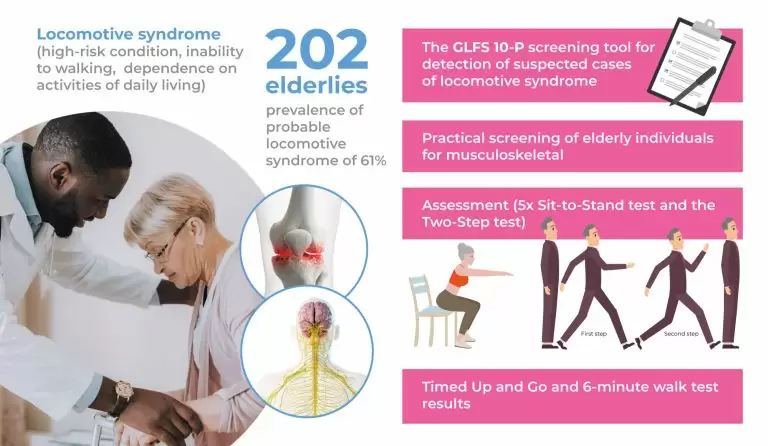
21/Nov/2022
Algorithm for screening and management of locomotive syndrome in elderly individuals and development of a short version of the 25-question Geriatric Locomotive Function Scale-Portuguese
einstein (São Paulo). 21/Nov/2022;20:eAO6349.
View Article21/Nov/2022
Algorithm for screening and management of locomotive syndrome in elderly individuals and development of a short version of the 25-question Geriatric Locomotive Function Scale-Portuguese
DOI: 10.31744/einstein_journal/2022AO6349
ABSTRACT Objective To develop a short version of the 25-question Geriatric Locomotive Function Scale-Portuguese and to create an algorithm for locomotive syndrome screening and management. Methods The 25-question Geriatric Locomotive Function Scale-Portuguese was applied to individuals aged 60 years or older seen at the Geriatrics and Gerontology Department of Universidade Federal de São Paulo, between 2016 and 2018. Items of the 25-question Geriatric Locomotive Function Scale-Portuguese were submitted to exploratory factor analysis using the principal component method. Internal consistency was […]
Keywords: Aged; Algorithms; Locomotion; Surveys and questionnaires; Validation study


